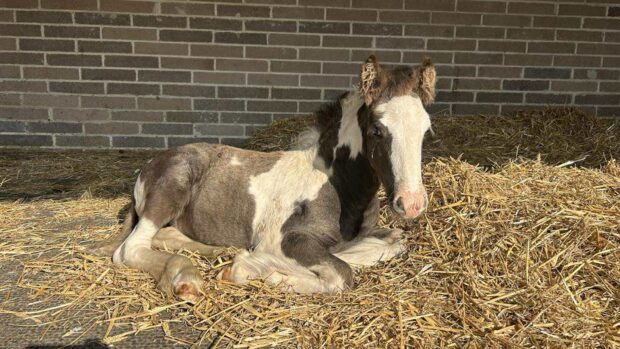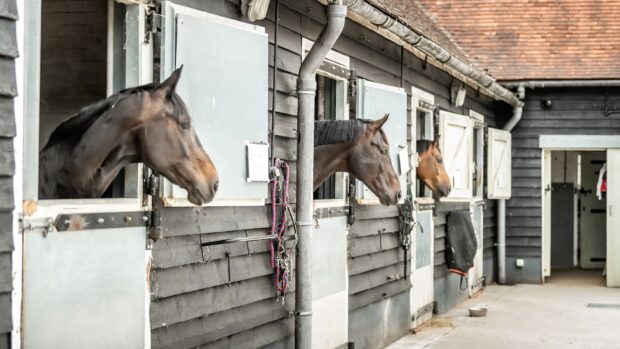Making invisible horses visible was the key topic of discussion at the annual World Horse Welfare conference yesterday (10 November).
Hundreds of guests gathered in London to hear speakers including Sheikh Sultan Bin Zayed Al Nahyan, Will Young and the Princess Royal discuss the issues facing equines across the world, and what is being done to combat them.
“What do we mean by invisible horses?” asked the charity’s chairman Barry Johnson, as he opened the conference.
“I spent most of my working life as an equine vet – 40 years – and in that time I saw what we’d call visible horses; much-loved horses whose owners cared enough to get them prompt and timely veterinary treatment.
“But it’s always bothered me that even these had to endure invisible suffering.”
Mr Johnson spoke of practices such as blistering or firing for undiagnosed lameness, and issues caused by owners failing to contact the farrier, or being unable to pay vets’ bills.
“Then I got involved with this great charity and started to see a whole new world of invisible horses,” he added.
“The levels of suffering, neglect and cruelty I saw will stay with me for the rest of my life.”
Singer Will Young spoke of the ponies of Bodmin Moor, where he lives, and the efforts being made to improve their welfare, while Sheikh Sultan discussed the ways in which he is trying to improve conditions for endurance horses.
“The invisible horses can be hidden in barns and containers,” said World Horse Welfare chief executive Roly Owers.
“Dumped on roads and commons, abused and neglected in their own homes. Unidentified, under the radar.
“But what’s visible depends on how you see things. Sometimes you can see the damage – a thin horse or one without shelter.
“But what about the distress of a horse kept stabled 24/7, or the well-rounded animal in a field who’s actually obese and at risk of laminitis? Or the ‘naughty’ one, rearing because it’s in chronic pain?
“And those who see their much-loved horses deteriorating in front of their eyes but choose to look away rather than face the prospect of ending their lives.
“With the access to treatment we have today, while there are reasons for this, there are no excuses, for visible or invisible suffering.”
Mr Owers said all concerned individuals and organisations should work together to “shine a spotlight” on invisible horses and suffering.
Related articles:
- Lifetime ban for man who kept ponies in shipping containers
- ‘Exhausted, stressed and frightened’: horses travel 60 hours to slaughter with one rest stop
- Six-year ban for woman who caused suffering to 50 animals
He added: “Let’s use our combined motivation and power to bring these horses into the light and give them the care and protection they so desperately deserve.”
For a full report on the issues covered at the conference, see next week’s H&H, out 17 November.




